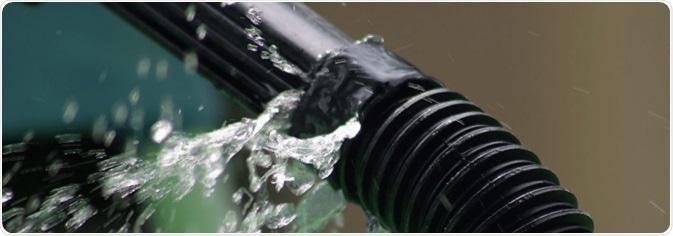
Image Credit: Jordi Labs
A crucial stage in the research and development (R&D) process is understanding how and why materials degrade and ultimately falter.
Polymers often fail in short timescales compared to the lifespan of traditional engineering materials. This is one of the reasons that polymers such as polyethylene terephthalate (PET) or high- and low-density polyethylene (HDPE/LDPE) are commonly utilized as single-use plastics.
Polymer failure is fast-moving and has highly complex mechanisms that can occur as a result of inherent structural and chemical limitations in the product, or due to adverse external factors.
In the context of single- and limited use plastics, this problem is less significant compared to the range of permanent polymeric products, where premature failure can result in liability concerns and even injury. This refers to products as far-ranging as engineering plastics, membranes, films, polymeric fibers, and more.
This article considers a selection of the most widespread causes of polymer failure that forensic analysts usually check.
Mechanical polymer failure
Mechanical modes of polymer failure are significantly varied and can arise at stress levels under the product’s ultimate tensile strength (UTS).
Creep rupture, also called long-term stress, is a parameter of time-dependent deformation under constant load. Gradual degradation by constant albeit low loads is a result of this. Fatigue, also known as cyclic loading, produces a similar kind of gradual failure through the growth of slow cracks.
Additional mechanical modes of polymer failure are ductile and brittle fracture, wear as a result of surface abrasion, and rapid fracture as a result of impacts.
Thermal polymer failure
Variations in temperature can have a significant impact on polymer failure by increasing chemical or mechanical modes or by inducing degradation thermally.
Cyclic cooling and heating can produce thermal fatigue in polymeric materials, which accelerates structural distortion and macroscopic crack growth. Irreparable dimensional instability can be produced by sole instances of temperatures at a high peak, which may be identified by shrinking, swelling, depolymerization, and more.
Other, more substantial, types of thermal polymer failure are direct flame impingement and combustion.
Chemical polymer failure
More than a number of other polymer failure modes, chemical attack is commonly a result of the material’s application area. Different types of strain or degradation can be caused by interactions between polymeric materials and an endless selection of chemicals.
Polymers produced for outdoor use must cope with exposure to ultraviolet light and oxidation. Hydrolysis can additionally result in failure when molecules from acids, alkalis, or water damage the chemical bonds of polymeric materials.
An alternative mode of chemical polymer failure is stress corrosion cracking (SCC), but this process is significantly broad, due to the endlessly large number of combinations of chemical interactions between polymers and corrosives. This is widespread in applications where polymers and cleaning agents interact.
Polymer failure analysis with Jordi Labs
Jordi Labs is one of the leading polymer failure analysis laboratories in the US, with a knowledgeable team of Ph.D. chemists who are highly familiar with the different modes of polymer failure that can impact customer products.
Along with the above, the team can additionally screen for modes of failure that are more complex, for example, molded-in stress (polymer processing defects) and ultraviolet degradation (optical).
Get in touch with a member of the Jordi Labs team today to gain additional information.
About Jordi Labs
Jordi Labs provides the highest quality contract analytical services and polymer HPLC columns to some of the world’s leading consumer products, polymers, pharmaceutical and medical device manufacturers. Our team of PhD analytical chemists specialize in chemical identification. One of core competencies is Extractables & Leachables testing.
We are also worldwide leaders in;
- Particulates & residue analysis
- Good-bad comparisons
- Method development/validation
- Polymer analysis
- Polymer failure
We also help companies from Fortune 500s to innovative startups with method development, preparative HPLC, training seminars, depositions and consulting. As a family company, we take pride in the production of all of our products and analytical service offerings. It is our goal to help our customers overcome their analytical challenges by providing excellent products and personal assistance from our highly-trained staff of PhD chemists
Sponsored Content Policy: News-Medical.net publishes articles and related content that may be derived from sources where we have existing commercial relationships, provided such content adds value to the core editorial ethos of News-Medical.Net which is to educate and inform site visitors interested in medical research, science, medical devices and treatments.